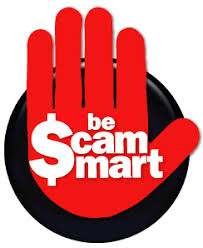The Internet Crimes Complaint Center estimates that Americans are scammed out of $239 million every year. Many of these scams are utility scams, which we want to help NES customers avoid. In observance of National Consumer Protection Week, Nashville Electric Service (NES) is joining the Federal Trade Commission (FTC) and other entities to make customers aware of how to differentiate a scam from a legitimate business transaction.
Scammers may use phone, in-person or online tactics to target customers. Scammers who target NES customers typically “spoof” or alter the name on the caller ID so that it displays an NES phone number. They often claim the customer’s account is past due and that immediate payment is required.
Scam artists will also make up elaborate details to make the scam sound convincing. The scammers usually try to intimidate customers into purchasing a pre-paid debit card and call a toll-free number to make the payment.
Small business owners, non-English speaking customers and the elderly are frequently targeted, but any customer is at risk. If a customer is unsure about the authenticity of a caller or the identity of a service worker, always call NES directly. NES will never provide a toll-free number for payments or go door-to-door to solicit payment information. All NES field employees wear uniforms and carry photo ID badges and company vehicles are marked with an NES logo and/or vehicle number.
Here are some additional tips to avoid a scam:
- If someone calls threatening to cut off your power if you don’t pay, hang up. This is a scam.
- If someone in a utility uniform shows up at your door for unscheduled service, check for proper identification and have them wait outside while you call NES at 615-736-6900 to verify their information.
- If you have doubts about a phone call, email, text or on-site visit, reach out to NES before taking any action.
- Never give personal or financial information to an unsolicited caller.
- If you think you are a victim of a scam, contact the local police immediately.
For more information on National Consumer Protection Week, click here.
Tags:
